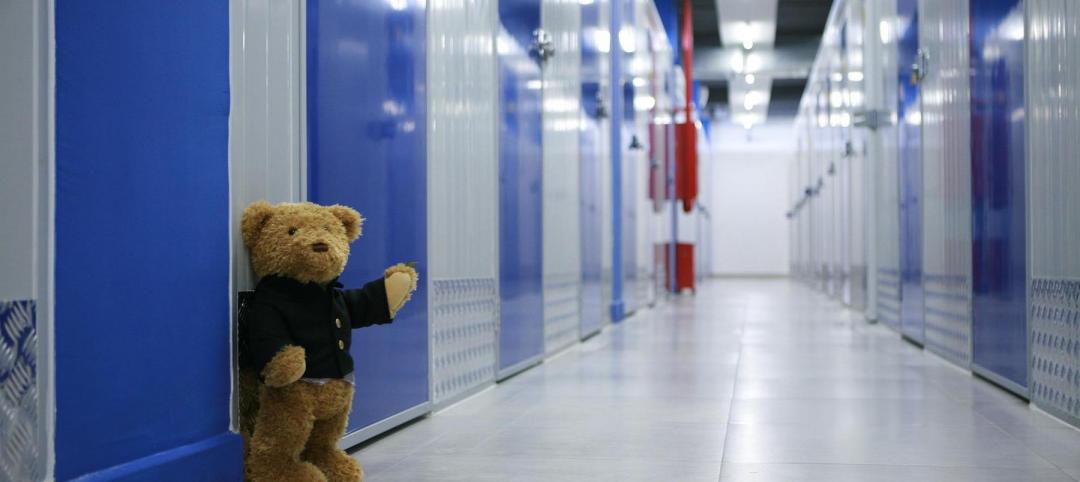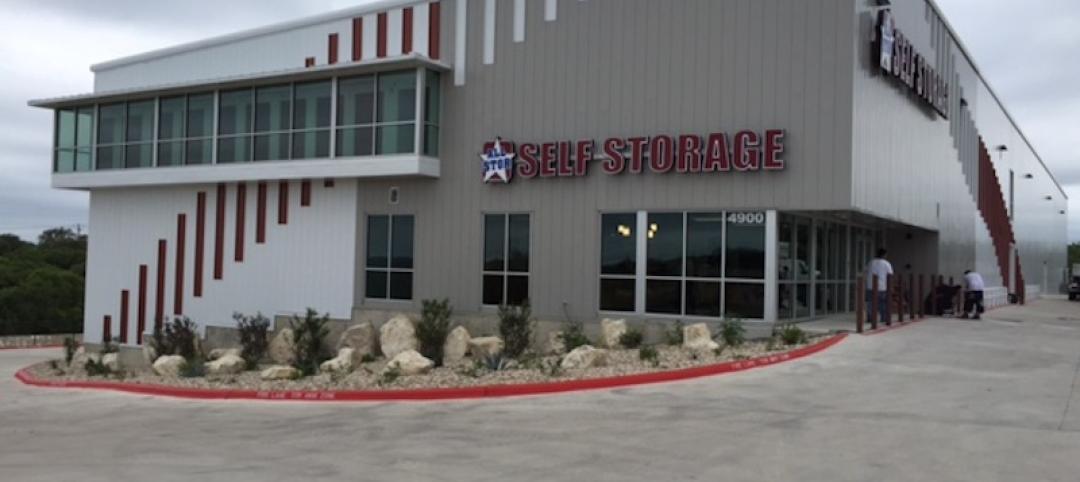In December 2023, Yardi Matrix released its National Self Storage Report detailing the state of the market at the end of the year. As the housing market cools down, storage facilities suffer from lower occupancy and falling rates. However, with new home sales expected to stabilize and storage development slowing, some are optimistic that occupancy and street rates could see an uptick.
Self-Storage from December 2023 Report
Street Rates
- Annual street rate growth remains negative (but stable) across all top metros, with Miami, Fla., seeing the weakest performance in November (-9.1% year-over-year). The metro has seen street rate performance "slip substantially" throughout 2023, according to the report
- Monthly street rates also declined in November, with Chicago, Ill., experiencing the largest drop (-2.0% month-over-month) and Portland, Ore., the lowest (-0.6% MOM)
- The national average combined street rate sits at $16.57 per sf in November 2023, a 1% drop from the previous month
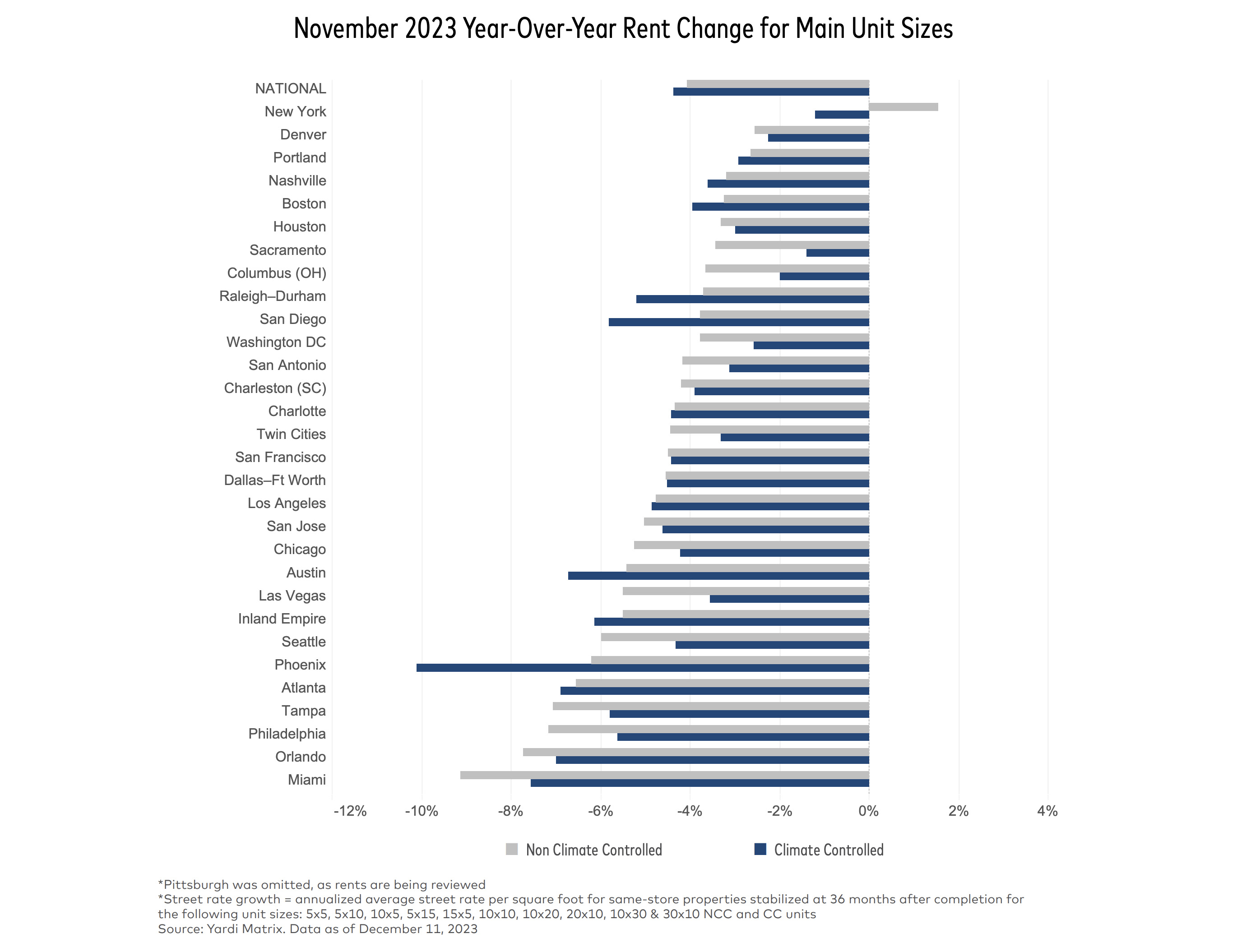
New Supply
- The national new-supply pipeline remained unchanged in November, but the number of abandoned projects is increasing
- Several Sun Belt metros like Orlando, Tampa, and Atlanta have seen weak street rate performance due to consistent new-supply activity
- New York City, despite having a substantial amount of new supply, has maintained strong demand due to its low relative storage supply per capita
- Over the past three years, Philadelphia, Pa., has delivered the largest amount of new supply (+17.1% of starting stock), while Seattle, Wash., has seen the least new supply additions (+3%)
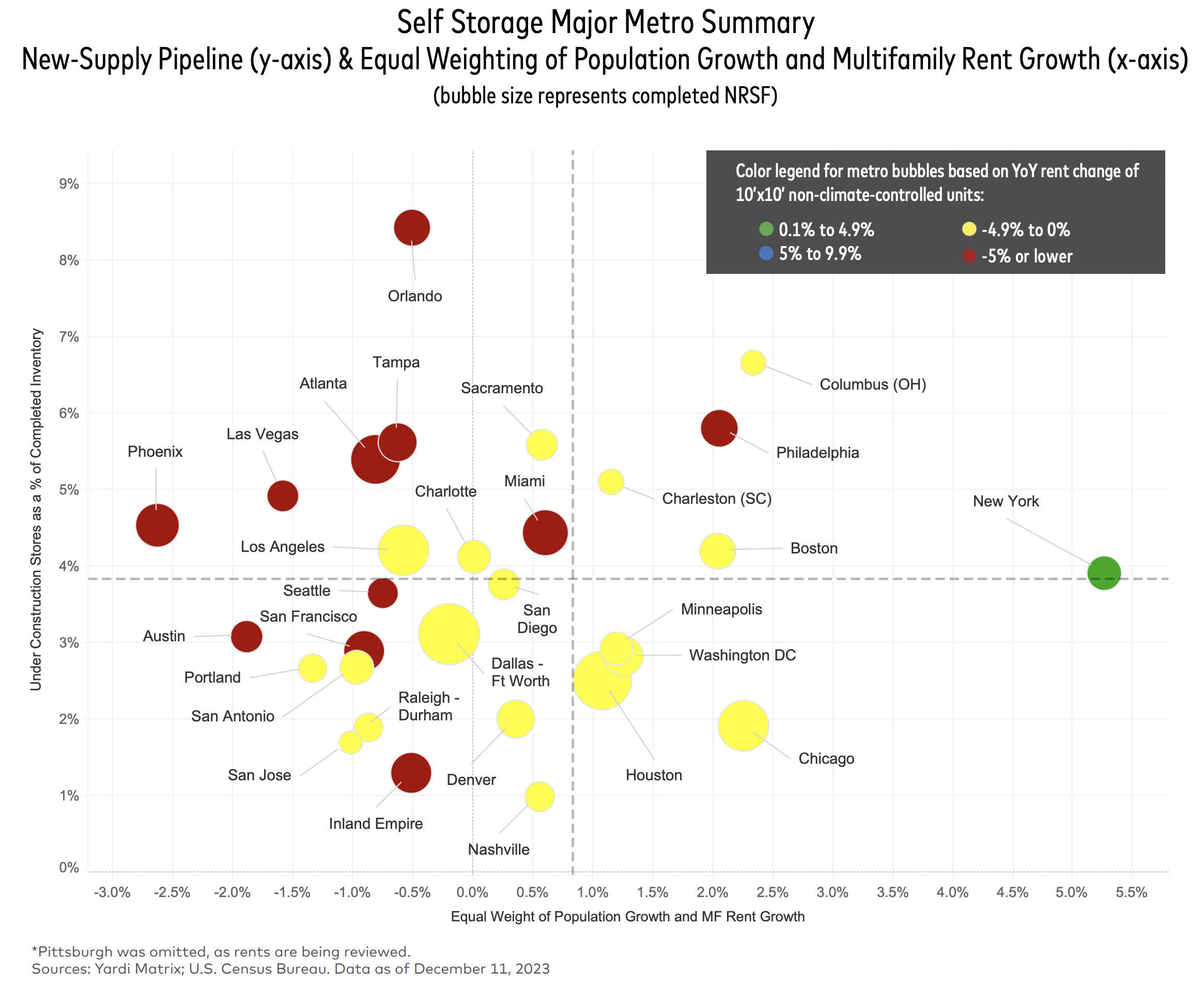
Lease-Up Supply
- Lease-up supply impacts street rates differently in different metros, with New York City's strong demand absorbing new supply well, while Philadelphia's weak demand struggles with its large amount of new supply
- Over the past three years, the national self-storage market added 8.6% of its existing inventory in new supply, with the past year alone contributing 2.7% of that total
- Construction activity increased the most in Charleston, S.C., but due to strong demand, the new supply is expected to be absorbed without significantly impacting rates
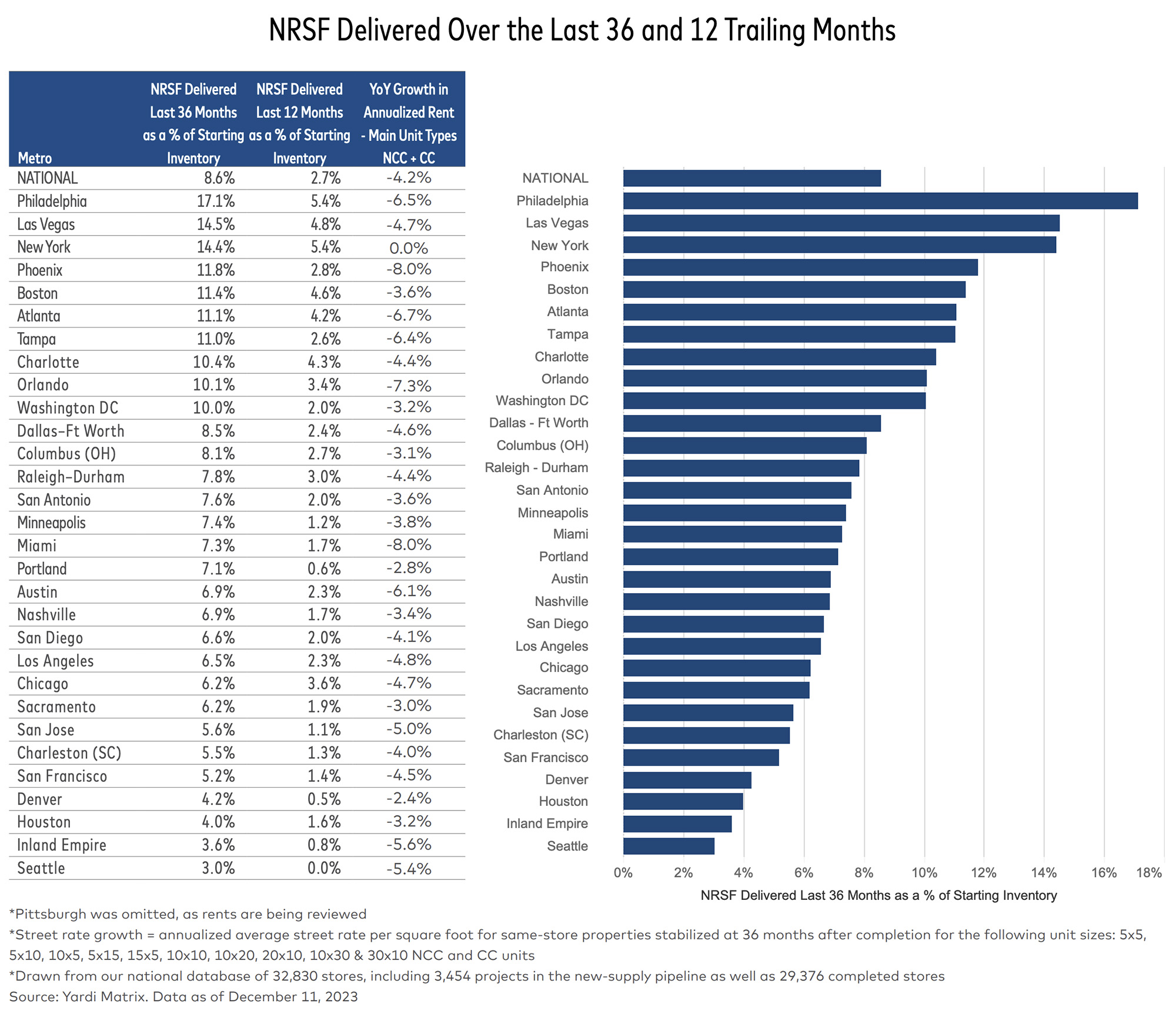
Overall, the self-storage market is facing some headwinds due to the slowing housing market, but it remains stable and new supply is starting to slow down. Some Sun Belt metros are struggling with weak demand and heavy new supply, while other markets like New York City are able to absorb new supply thanks to strong demand.
Click here to read the full Yardi Matrix report.
RELATED
Related Stories
The Changing Built Environment | Sep 23, 2024
Half-century real estate data shows top cities for multifamily housing, self-storage, and more
Research platform StorageCafe has conducted an analysis of U.S. real estate activity from 1980 to 2023, focusing on six major sectors: single-family, multifamily, industrial, office, retail, and self-storage.
Self-Storage Facilities | Jan 25, 2024
One-quarter of self-storage renters are Millennials
Interest in self-storage has increased in over 75% of the top metros according to the latest StorageCafe survey of self-storage preferences. Today, Millennials make up 25% of all self-storage renters.
Self-Storage Facilities | Apr 25, 2023
1 in 5 Americans rent self-storage units, study finds
StorageCafe’s survey of nearly 18,000 people reveals that 21% of Americans are currently using self-storage. The self-storage sector, though not the most glamorous, is essential for those with practical needs for extra space.
Self-Storage Facilities | Dec 16, 2022
Self-storage development booms in high multifamily construction areas
A 2022 RentCafe analysis finds that self-storage units swelled in conjunction with metros’ growth in apartment complexes.
Self-Storage Facilities | May 19, 2022
A steady increase in new self-storage space is meeting growing need in large metros and their suburbs
Rent Café’s study projects a 9 percent bump in the nation’s existing inventory.
Self-Storage Facilities | Apr 20, 2016
Design is now a factor in storage wars
Self-storage facilities are blending into neighborhoods better, and competing for rentals from women, their primary customers.








